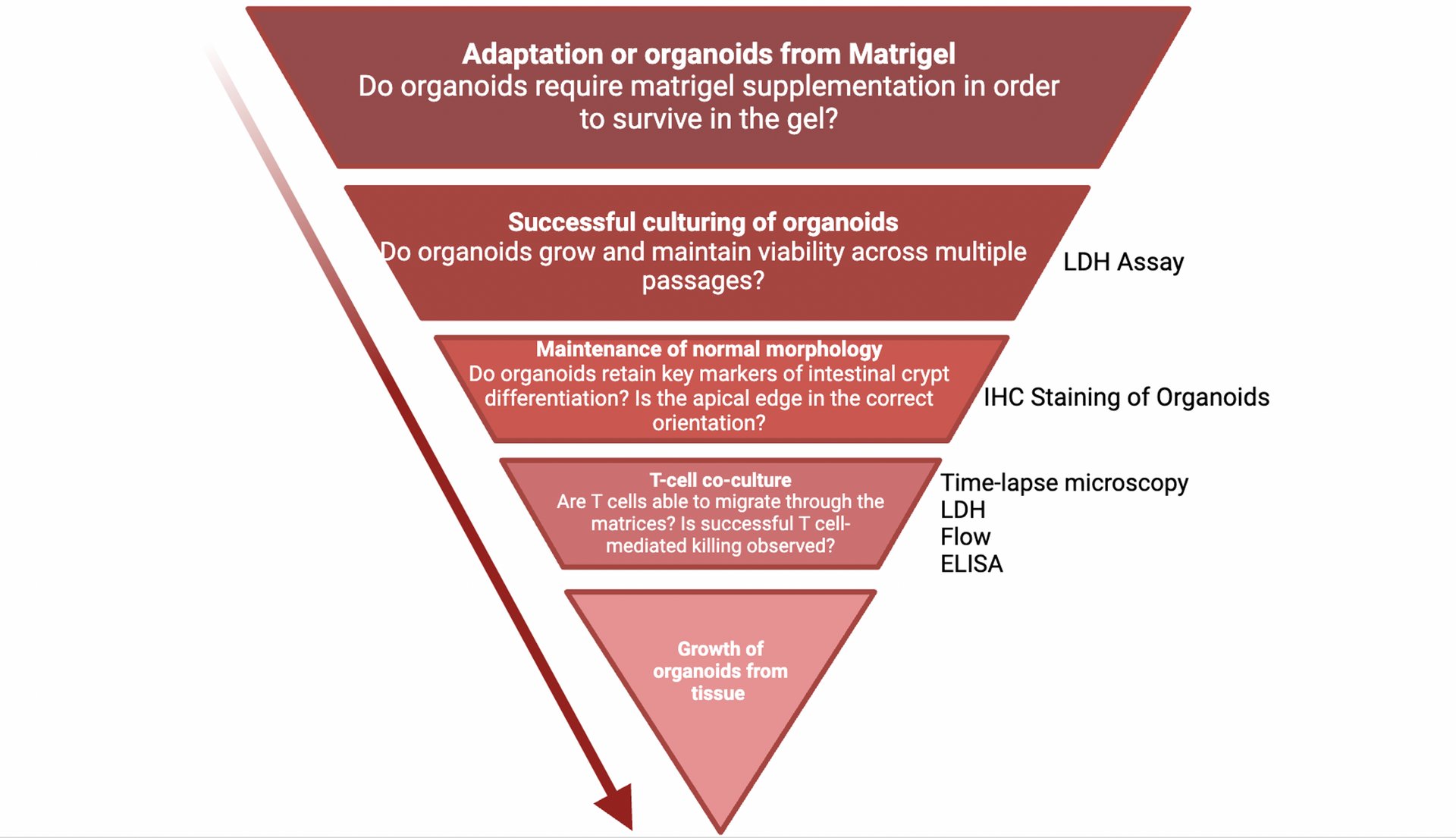
Replacement of Matrigel in Organoid Culture
Chloe Harris
HarrisC27@cardiff.ac.uk, Chloe Harris | LinkedIn
My PhD is funded by the NC3Rs and is centred on the replacement of mouse immunotherapy models with human colorectal cancer organoids which Stephanie has developed. Our overall aim is to develop a system, which reduces and replaces the use of mice in T cell immunotherapy studies using human organoids in co-culture with genetically engineered T cells. For this purpose, we will combine human organoid technology with our bank of cancer-antigen specific T cells derived from patients with cancer. Organoids represent a favourable alternative to animal models; they recapitulate multiple aspects of real organs, making them relevant to the study of organ development, function and disease
Within this lab alone, it is estimated that 2000 mice will be sacrificed over a 5-year period for adoptive transfer studies, which could be replaced by a human organoid T cell co-culture system.
We will also be trialling the use of animal free hydrogels to culture these organoids, rather than murine-derived Matrigel. Studies have found that 1 mouse is sacrificed for every 6.3 mL of Matrigel. Therefore, these efforts will also reduce the lab’s animal burden, with the lab currently using over 200mL of Matrigel annually. Kibbey, Maura C. (1 September 1994): 227–30. https://doi.org/10.1007/BF01540656.

Matrigel, a commonly used matrix for organoid culture, is derived from mouse sarcoma cells and contains a complex mixture of extracellular matrix proteins and growth factors. While it supports organoid growth and differentiation, Matrigel's animal origin and batch-to-batch variability pose significant challenges. These include ethical concerns, inconsistent experimental results, and difficulties in standardising research protocols.
We are currently trialling various commercially available synthetic, natural, and human-derived hydrogels as a Matrigel replacement to overcome these limitations. Synthetic hydrogels offer a defined and reproducible environment for organoid culture, free from animal-derived components. These hydrogels can be engineered to provide specific biochemical and mechanical properties that support organoid growth and mimic the natural tissue environment.

Matrigel alternatives and plan of action. We will test different non-animal-derived hydrogels from companies such as The Well Biosciences, PeptiMatrix, Humabiologics and UPM Biomedicals. Initially, we will transfer the organoids from matrigel into the hydrogel and monitor a variety of endpoints. We have several stop points to discard the gel if the experiments are unsuccessful. At the end of the project, we hope to have a successful alternative to matrigel to grow, maintain and experiment on the organoids.
Stephanie and Chloe are key founding members of the GW4 Replacement Network. They play a pivotal role in establishing the network and are leading the organisation of its inaugural meeting, scheduled for 2025 in Cardiff. This event will bring together researchers within and beyond the GW4 alliance to showcase the latest advancements in animal replacement technologies.
For more information please visit:
https://gw4.ac.uk/gw4-animal-replacement-network/

Funding from this project has been received from Wales Cancer Research Centre, Wales Cancer BioBank, NC3Rs, GW4, UKRI Harmonised Impact Acceleration Account, Institutional Strategic Support Fund Public Engagement Award, Future Leaders in Cancer Research Seedcorn Funding.